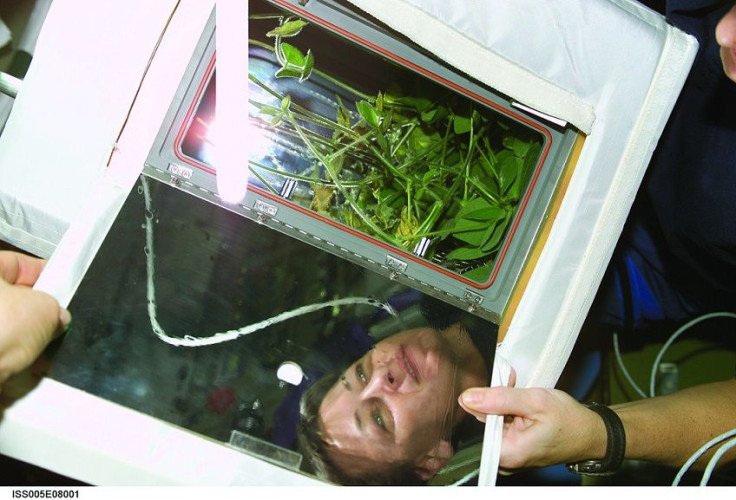Successful ISS Experiment Could Benefit Earth And Future Space Colonies

KEY POINTS
- Astronauts were able to grow and preserve crops in the ISS
- Removing ethylene can extend the lifespan of plants
- Growing plants in space will benefit future human outposts
Astronauts aboard the International Space Station (ISS) have been conducting experiments that involve growing plants in space. Aside from helping improve the quality of crop production on Earth, these experiments can also benefit future human space outposts.
The experiments conducted aboard the ISS is being carried out as part of a study known as Advanced Astroculture (ADVASC). The study focuses on the use if micro-gravity to plants that are more resistant to pestilence and can endure unfavorable climates.
For the study, ADVASC experiments were brought to the ISS through previous resupply missions. Aside from the experiments, a plant-growth chamber was also brought on board. Through this chamber and another device known as the ADVASC air scrubber, ISS astronauts were able to grow plants without ethylene.
Ethylene is a naturally occurring odorless and colorless gas produced by plants. Its presence encourages decay since it can ripen fruits at a faster rate and speed up the aging process of flowers. Aside from increasing the lifespan of plants, the ISS experiment also revealed how plants and crops could be preserved in space.
“In closed growing environments such as a spacecraft or terrestrial greenhouse, ethylene builds up quickly,” NASA explained. “As a result, plants mature too fast. Removing ethylene, therefore, is important to preserving crops not just in space, but also on Earth, where grocers and florists have an interest in longer product shelf life.”
As noted by the agency, the results of the experiment can greatly benefit industries on Earth that rely on plants and crops. They can also be used in addressing food supply issues currently facing various regions on the planet.
Aside from these, the ADVASC study can also play a huge role in the preparation of long-term space missions. Being able to grow and preserve crops in space will play a direct role in the success of expeditions and future human outposts.
“Understanding the effects of gravity on plant life is essential in preparing for human exploration beyond low-Earth orbit,” NASA stated.
“The ability to produce high-energy, low-mass food sources during spaceflight will enable the maintenance of crew health during long-duration missions while having a reduced impact on resources necessary for long-distance travel,” the agency added.
© Copyright IBTimes 2024. All rights reserved.




















